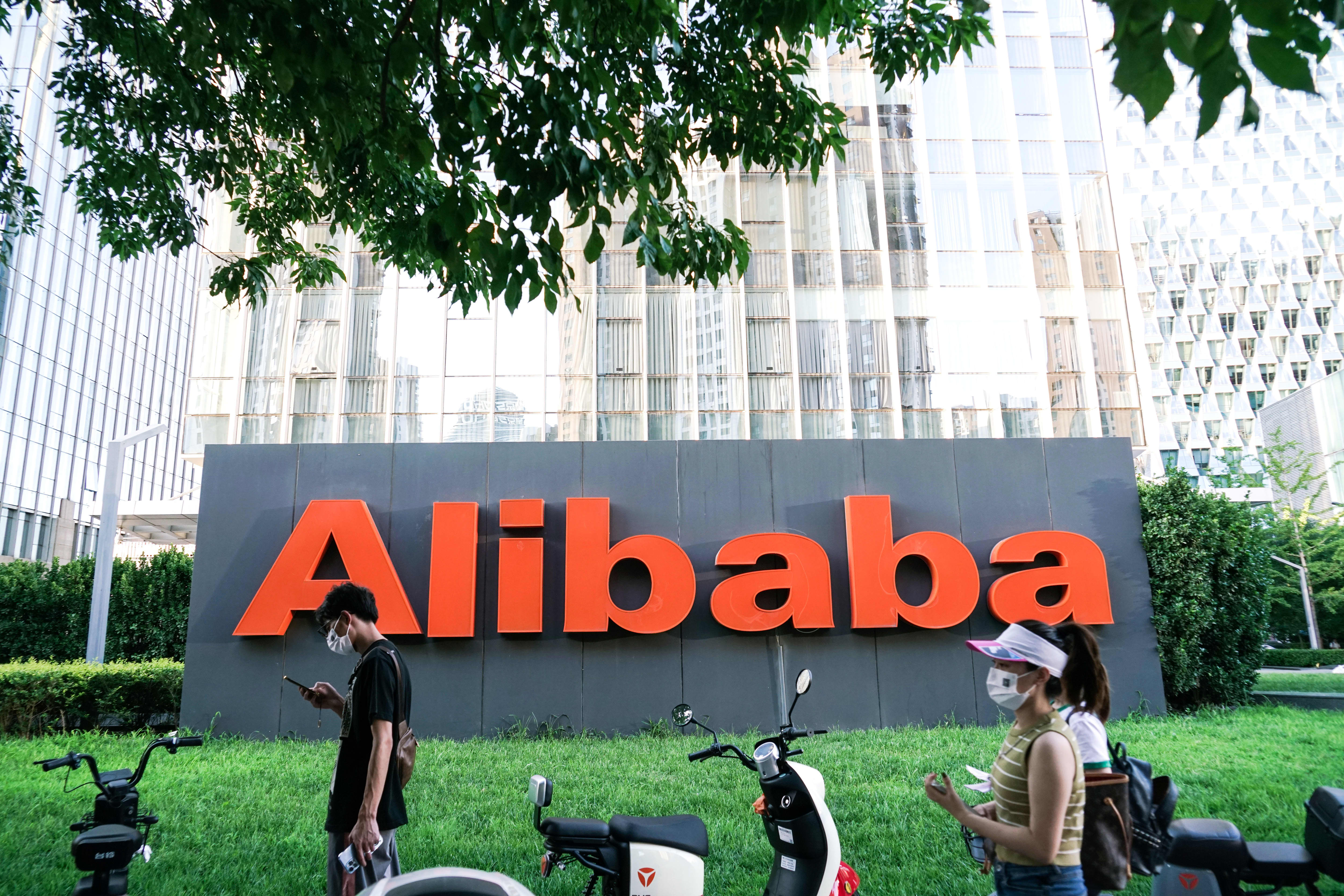
Alibaba reported earnings for its fiscal third quarter that smashed expectations, sending shares soaring 4% higher.
Here’s how Alibaba did in its fiscal third quarter, which ran from October to December 2022, versus Refinitiv consensus estimates:
- Revenue: 247.76 billion Chinese yuan vs 245.18 billion Chinese yuan expected, up 2% year-on-year
- Earnings per American depositary share (ADS): 19.26 yuan vs 16.26 yuan expected, up 14% year-on-year.
- Net income: 46.82 billion yuan vs 34.02 billion yuan, up 69% year-on-year.
Around $600 billion has been wiped off the value of Alibaba since its peak in October 2020, as a tightening regulatory environment on tech firms in China along with China’s strict Covid-19 control policies, and subsequent economic slowdown, hit the e-commerce giant.
Alibaba shares in Hong Kong on Thursday closed higher ahead of earnings, as investors bet that that China’s economic re-opening will help boost consumer sentiment and spending, which will ultimately help the e-commerce giant. During the December quarter, China abruptly ended its strict Covid controls such as lockdowns. However, this is not likely to be fully reflected in the quarter as it took place in December.
Meanwhile, the regulatory tightening that took place over the past two years is beginning to ease, as enforcement of regulation becomes more predictable.
Analysts are expecting Alibaba to see faster revenue growth over the coming quarters as the full effect of the Chinese economic re-opening is felt. Morgan Stanley named Alibaba its “top pick” in the Chinese tech sector for the first time in three years, in a recent note.
Last year, Alibaba embarked on measures to control costs in order to improve profitability. Alibaba is trying to find a balance between costs and continuing to make important investments for long-term growth.
The company is also trying to boost the confidence of shareholders amid its stock slump. In November, Alibaba said its board has approved an additional $15 billion as part of its existing $25 billion share buyback program which will be extended to the end of its 2025 fiscal year.
Alibaba is also in the process of making Hong Kong a “primary” listing for its shares, paving the way for mainland China investors to trade the stock directly. However, the company said in November that the process would not be completed in 2022 as it had initially been planned.
This is a breaking news story, please check back later for more.
Source: CNBC
